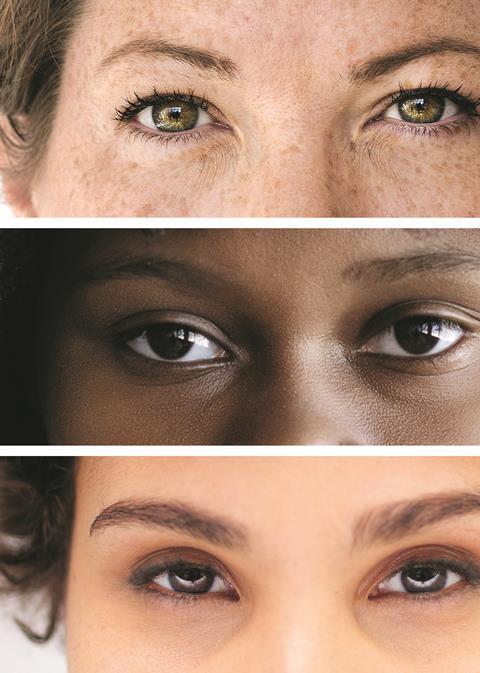Hope Bonarcher tackles the assumptions our culture can make based on the colour of a person’s skin

I recently responded to the Instagram post of a popular, conservative, women’s magazine. It seems Disney’s considering an Indian actress to play the role of Rapunzel. Indian women, internationally renowned for their beauty and luxurious hair, might be a well-considered suggestion for the princess with an unfortunate family origin story and impossibly lengthy mane. As many commenters pointed out, however, the story of Rapunzel most notably emanates from German brothers, Jacob and Wilhelm Grimm. The new film is to be a live-action version of the animated movie, Tangled, which stars a traditionally blonde-haired Rapunzel (effervescently voiced by Mandy Moore), further suggesting the role would be more accurately cast with a white actress.
My one-lined response to the post: “Rapunzel has long, blonde hair, period!” received six times the likes of any other comment I’ve made on the platform, and counting. The whole thing got me thinking: is there really anything wrong with a non-white Rapunzel, or is it our society’s ever-more pervasive issue with whiteness that’s really setting off my amiss-o-meter?
Scotland called too white?
Case in point, a few weeks ago I came across a video of Scottish First Minister, Humza Yousaf. Ethnically Pakistani, Yousaf is the first-ever Muslim to lead a Western, democratic nation. On the platform of the Scottish Parliament, he lamented: “the most senior positions in Scotland are filled almost exclusively by those who are white”. Listing off a rota of powerful titles – “the lord president, the lord justice clerk, every high court judge…” – each followed with the heavily emphasised and damning descriptor “WHITE!”, spoken as if it were a dirty word, warranting immediate fixing if the Scottish people are to have any hope of achievement in the brave new “ethnically diverse” world of the future. In the First Minister’s words, a mostly white-led Scotland is “just not good enough”.
I was taught character is a better indicator of goodness than skin colour
I wonder how white Scots feel about this? Scotland is, after all, an ethnically white country – 24 out of every 25 Scottish people are white. The indigenous people of Scotland are white people. Would a Chinese leader ever lament the country as too Chinese? Are African leaders aggrieved over their nations’ blackness? Living in Scotland over half a decade with my Scottish husband, considering the history of my neighbours, I don’t see ‘problematic white people’. I see the descendants of warriors; clans, so formidable, they were able to fight off the Romans (their whiteness wasn’t holding them back then, I guess). Yet, the leader of the ironically named Scottish National Party seems concerned the people he leads as a nation are not brown enough.
Sinfulness is not dependent on our colour
So, what’s so bad about whiteness? A card-carrying member of Generation X, I’ve not been indoctrinated in the ideas of race bias and white privilege. I can remember a disagreement with my sociology professor regarding black people’s ability to be racist. She argued “nay”, I argued “yay” – I never finished that class, actually. The notion white people are inherently racist, while blacks are incapable of it given Western society’s systemic constructs, has never passed muster with me.
As a black woman growing up in America, I’ve experienced racism. I’ve been called the ‘n’ word by a white guy in the South driving a pick-up truck and been told I wouldn’t succeed in my line of work, due to blackness. I’ve been turned down for the school dance because my crush didn’t believe in interracial dating (that one really stung) and had (very mistakenly) assumed I’m great at dancing and athletics. Despite this, I was taught character is a better indicator of goodness than skin colour.
Who are we, to be puffed up by our own or to distastefully condemn another’s ancestry?
The bad interactions I’ve had with white people over the years are overwhelmingly outshined by the good ones; like being voted president of my class in a 99 per cent white high school, falling in love with my white husband, and the many wonderful relationships with white friends, pastors, bosses and other people who’ve impacted my life. I’ve embraced the parts of my own white ancestry, something very common for the cultural amalgam of America, alongside my blackness. Not only African and Jamaican, I’m also British, German, French (and Native American). These aspects of my heritage are just as interesting as the black parts. I’ve also had plenty of negative interactions with other black people. I was molested by a black family member, experienced hurtful bullying from black classmates in primary school. As a model, I didn’t make print in a black fashion magazine because I wasn’t dark enough. Throughout these experiences, I’ve learned the sin market is cornered by the rainbow of us; we’re all equal opportunity offenders.
So, what about whiteness? Weren’t Britons colonisers, hindering entire nations through brute conquests? Yes. In fact, before they were colonisers, many were pagan tribespeople, specialising in witchcraft. Likewise, the ancient Mediterranean cultures ruled as war-mongering idolaters, and let’s not leave out the Vikings’ savagery. South Americans and American Indians were known for occult practices like child sacrifice and cannibalism. Africa and India were scattered people groups whose chiefs handled conflicts with brutality and sorcery. Ancient Asian cultures warred, ravaged and consulted unknown gods etc. All Gentile nations began as enemies of God; wretched, pitiable sinners worthy only of his wrath, not the free gift of grace extended to us in Jesus. As BAME, BIPOC, ethnically diverse people, or whatever we are supposed to be calling ourselves these days, according to the Bible, there is nothing we should glory in.
Is this offensive? Will you provide a defence of your ancestors’ righteousness over more awful offenders, like white people? Let us take heed, lest we fall. Apostle Paul said, even as a law-abiding Israelite, a likeness shared with Jesus himself, he would boast only in his weaknesses and Christ crucified (see Philippians 3:1-14). Who are we then, to be puffed up by our own or to distastefully condemn another’s ancestry? Not even the Jews’ nationality saves them, apart from faith in Jesus; how much less the Gentiles? We see the outward things, but God searches hearts. We must go before him, each with pure hearts, making sure condemnation of whiteness – or any other identity not rooted in new life in Jesus – is nailed to his cross and crucified.

































No comments yet